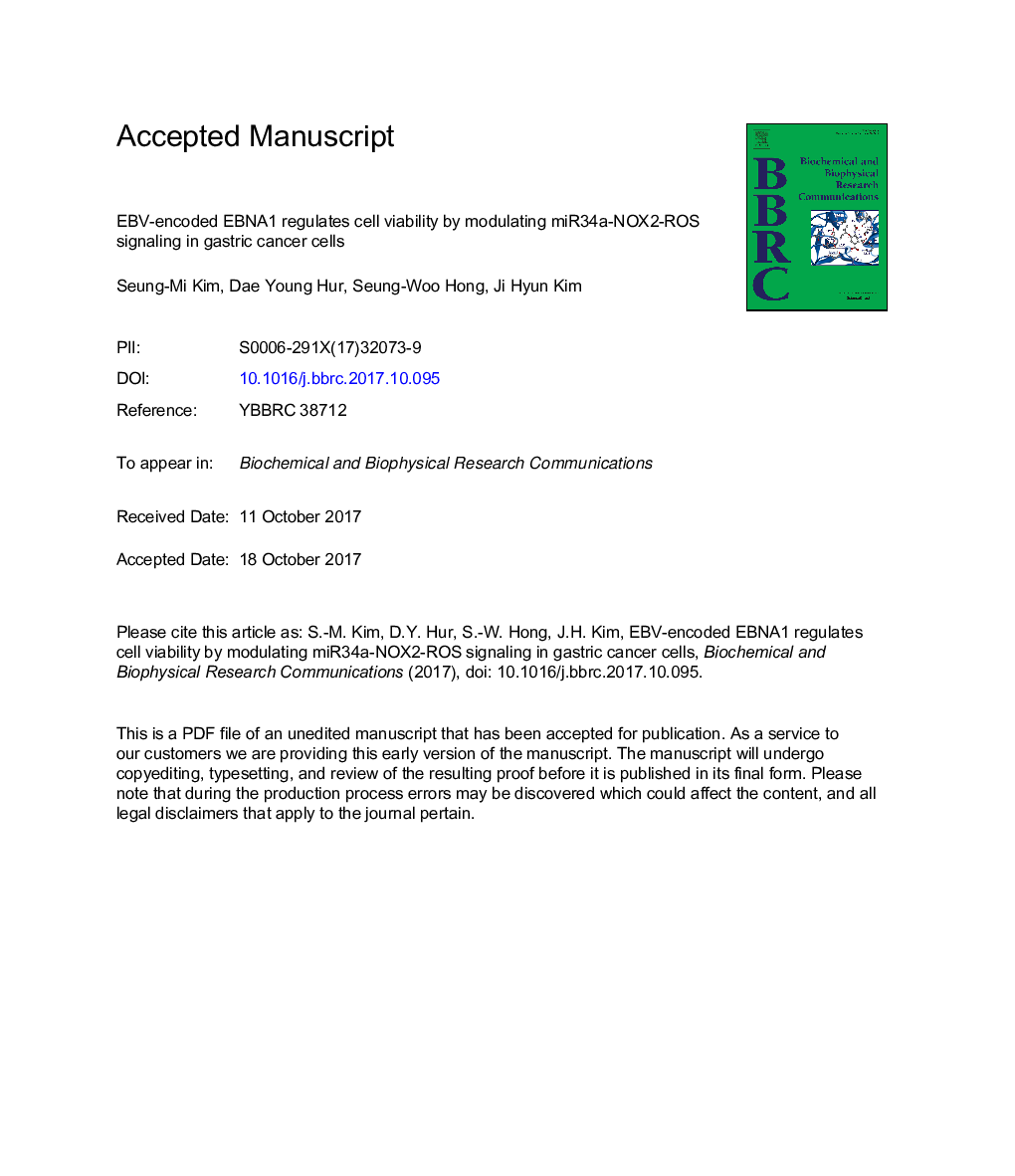| Article ID | Journal | Published Year | Pages | File Type |
|---|---|---|---|---|
| 8295833 | Biochemical and Biophysical Research Communications | 2017 | 23 Pages |
Abstract
Epstein-Barr virus (EBV) nuclear antigen 1 (EBNA1) is a viral protein expressed in all EBV-infected cells that induces malignant transformation. EBNA1 is reported to contribute to tumor progression through an increase in reactive oxygen species via nicotinamide adenine dinucleotide phosphate oxidase. However, the underlying molecular mechanism of EBNA1-induced ROS accumulation in gastric cancer is poorly understood. Here, we demonstrated that miR34a regulation by EBNA1 determined cell fate in EBV-infected gastric cancer cells. ROS content and NOX2 expression were higher in EBNA1-expressing SNU719Â cells than in EBNA1-nonexpressing SNU638Â cells. Downregulation of NOX2 using siRNA technology in SNU719Â cells decreased cell viability and ROS content. Regulation of EBNA1 expression in EBV-associated gastric cancers modulated NOX2 expression, ROS content and cell viability. We also showed that upregulation of NOX2 by EBNA1 was mediated by downregulating miRNA34a. Finally, overexpression of miR34a in EBNA1-expressing SNU719Â cells induced typical apoptosis, suggesting that reactivation of miR34a in EBNA1-expressing gastric cancer cells could be a strategy for treatment of EBV-infected gastric cancer cells.
Related Topics
Life Sciences
Biochemistry, Genetics and Molecular Biology
Biochemistry
Authors
Seung-Mi Kim, Dae Young Hur, Seung-Woo Hong, Ji Hyun Kim,
